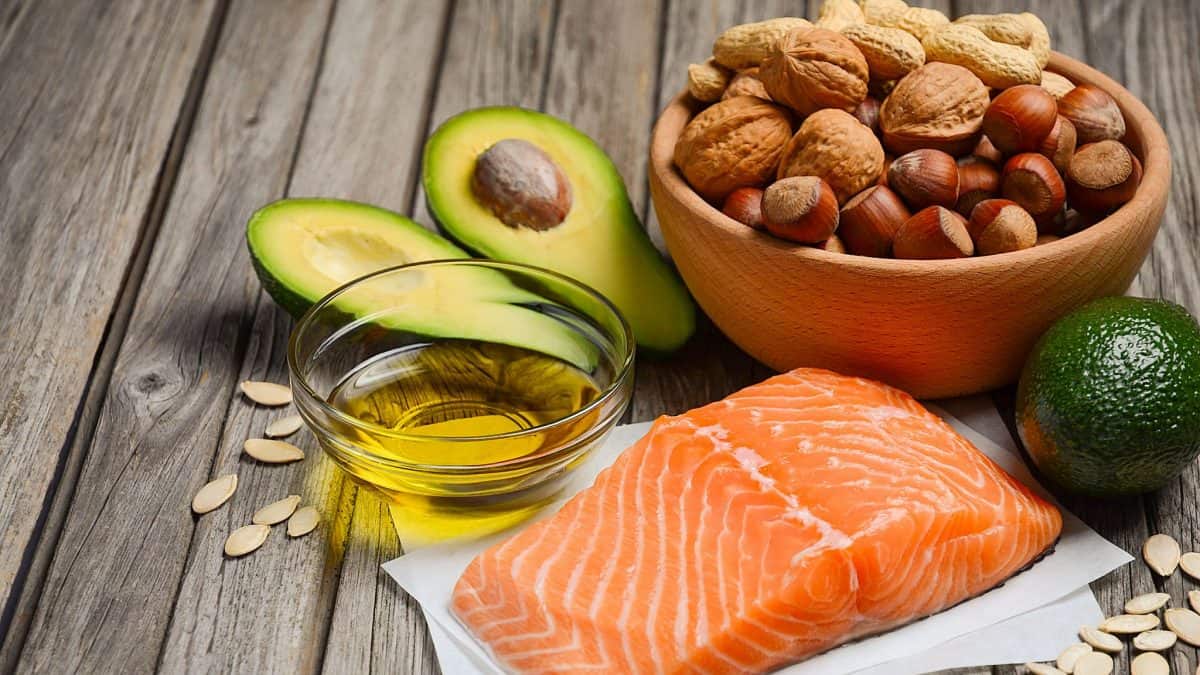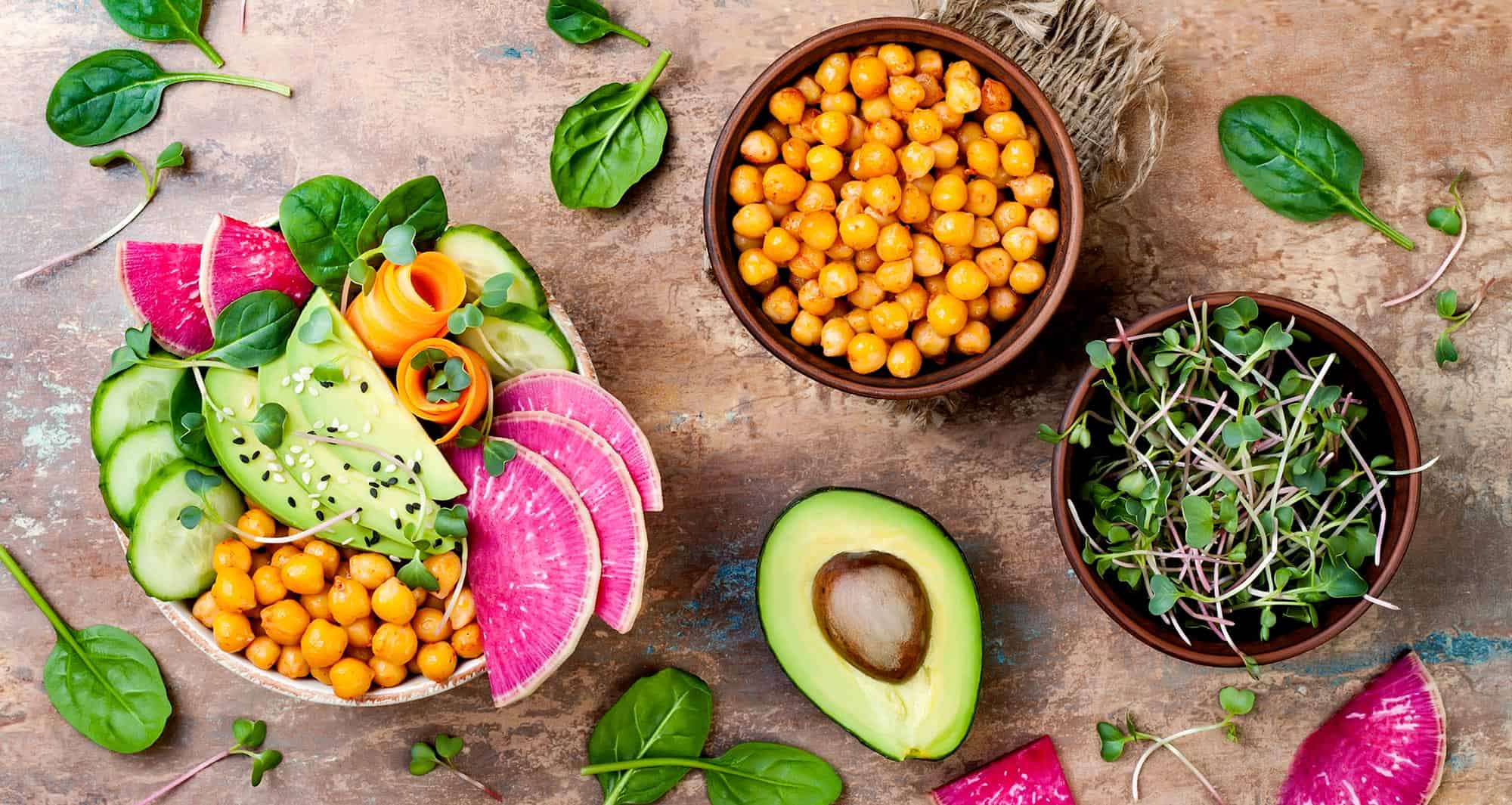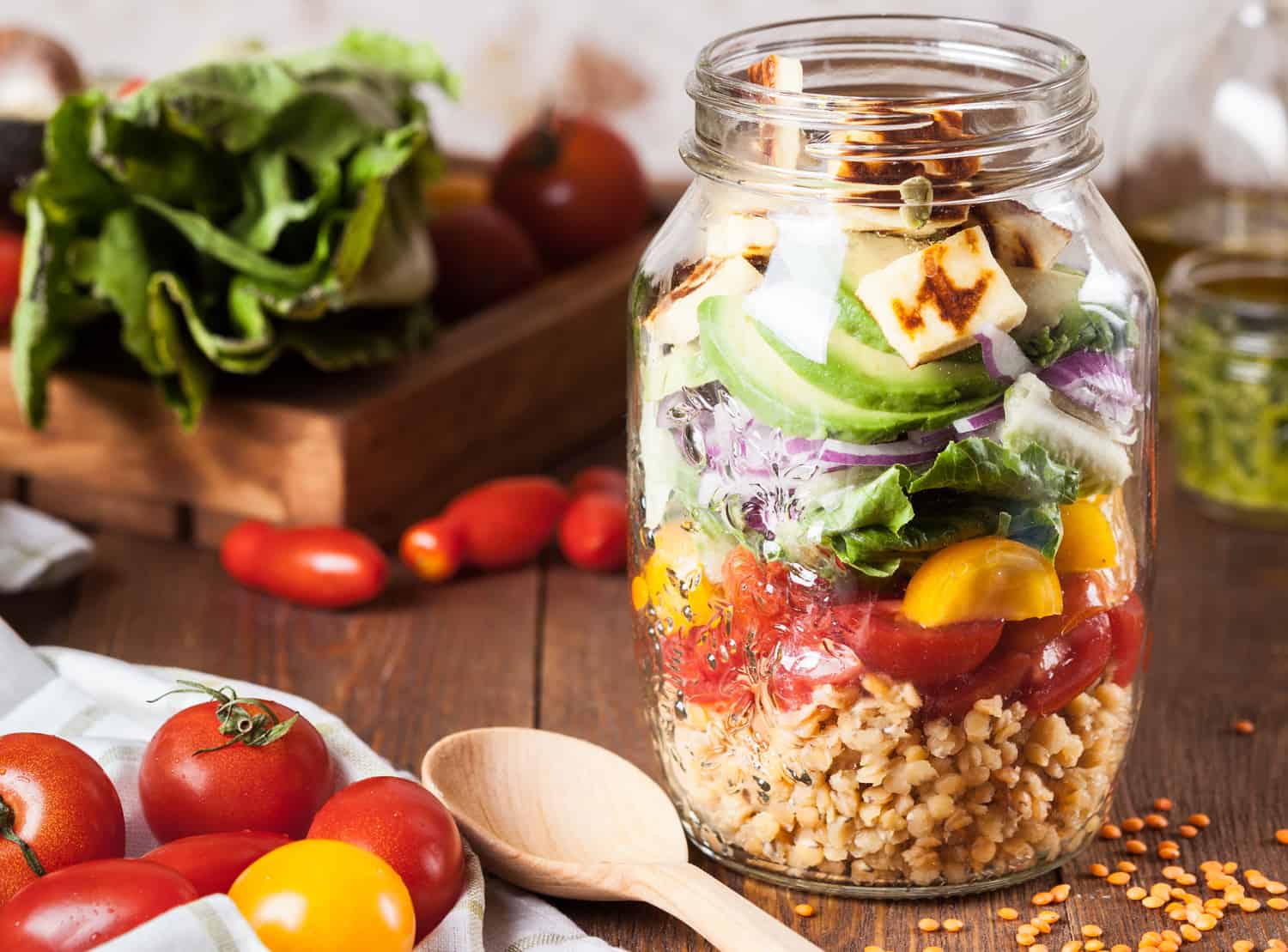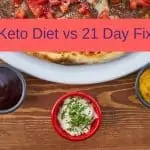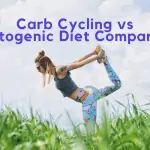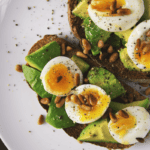Both the ketogenic diets and vegan diets have been controversial diets for many decades, just as the same as both of these diets are claimed to be great for weight loss and other health benefits. Besides weight loss, there are several other benefits that both of these diets can provide you with if you properly follow them.
But which diet plan is right for you to follow? In today’s article, we will break down the definition of each diet as well as the positives and negatives that come with following either diet. Let’s get started!
Topic Contents
What is a keto diet?
The ketogenic diet is a low carb, moderate protein, a high-fat diet that focuses on eating healthy, natural fats (list of the best fats to consume while on keto). By following along with a low carb intake, our bodies will burn through our fat stores in order to feed itself energy. The goal of the keto (ketogenic) diet is to have your body raise your ketone levels so that way your body goes into a state of nutritional ketosis.
What are the pros of the keto diet?
Helps to curb your appetite
One of the biggest problems experience with dieting is controlling their appetite; when people are hungry, they are more likely to binge on unhealthy foods that ultimately just lead to weight gain.
An amazing benefit of following the keto diet is that eating low carb helps to reduce your appetite since your blood sugar levels won’t be spiked by the sugar in carbs. This means that you may end up eating fewer calories than they normally would, without any extra effort or feeling like they’re starving.
Reduced blood sugars
If you (or someone you know) is a Type 2 Diabetic, you may want to listen up. When a person consumes carbs, the carbs are broken down into simple sugars, also known as glucose. After the carbs are broken down into glucose, the glucose enters your bloodstream, which raises your blood sugar levels.
Since high blood sugar levels are bad for your body, your body responds to these high blood sugar levels with insulin, which is a hormone that tells the cells in your body to either burn the excess glucose or to store it. For people who don’t have diabetes, your insulin will help to reduce the spike in your blood sugar so that it won’t harm you.
But for people with insulin resistance, the cells in your body don’t react to the insulin in your body, which means that they have a harder time bringing down your dangerous blood sugar levels. This is what Type 2 diabetes is, when your body doesn’t produce enough insulin to lower your blood sugar levels after you eat.
By cutting out your carb intake, you reduce your need for all of the insulin that your body is making. This means that both your blood sugar levels will go down and your insulin production will go down. Some diabetics are even able to limit or completely get rid of their glucose medications after following a low carb diet for a good period of a time.
But, don’t just read this article and cut out all of your carbs. If you are a diabetic or have insulin resistance, do some more research about the ketogenic diet and talk to your doctor to see if this diet would be a safe diet for you to follow.
Increased fast weight loss
Cutting down on your carb intake is one of the fastest and easiest ways that you can quickly lose weight. The science behind this is when following along with a low carb diet, your body will tend to get rid of extra water. This is because your insulin levels will start to lower, which will make your kidneys start getting rid of extra sodium stores that they have. You may see a quick drop in your weight within the first week or two of following the keto diet.
What are the cons of the keto diet?
It can be hard to follow
The ketogenic diet can be extremely difficult to follow for a long period of time. If you are not used to following a low carb diet and are looking to step down from a high carb diet to the extreme low carb diet that keto is, you may find that you really struggle. It’s much easier to think of the ketogenic diet as a lifestyle and not a diet.
You may find that it doesn’t promote long-term weight loss
A lot of people that follow of the ketogenic diet claim that keto isn’t just for weight loss, it’s a lifestyle. If you are only following the ketogenic diet for weight loss, you may find that you will gain weight back if you end up consuming a high carb diet again after you have lost a certain amount of weight.

May slightly lower blood sugar levels
Since you won’t be able to eat as much processed foods as you did before you started following a vegan diet, you may notice that your blood sugar levels are slightly leveled. Certain types of chips, flavored popcorn, fries, and other overly processed foods won’t be foods that you can eat anymore.
However, following a vegan diet won’t do the same thing for you that a ketogenic diet does for your blood sugars. You can still eat French fries if you bake them, find vegan chip flavors, and other high-carb vegan foods. Fruits are high in carbs, a lot of vegetables are high in starches, all which will spike your blood sugars. If you are a Type II diabetic or have problems with insulin resistance and are looking for a diet that will help you manage your health better, a vegan diet can be a great way for you to go, but only if you don’t eat a lot of processed vegan foods.
Most people end up eating unhealthy fats
While the ketogenic diet does encourage users to consume more fats, most people end up consuming fats that aren’t very healthy. Most people end up eating a lot of saturated animal fats or highly processed fats. Eating fat on the keto diet is healthy, as long as it is organic and/or grass-fed animal fats, as eating high-quality fats that aren’t processed are much healthier for you than eating overly processed fats.
What is a vegan diet?
If you are thinking of switching over to a vegan diet, you will be following a diet that eliminates the consumption of animal products and animal by-products. By eliminating meat and other animal products from your diet, you will begin to rely heavier on other foods for nutrients. This means that you will start to consume more fruits, vegetables, seeds, grains, nuts, peas, and legumes.
As these types of foods take up a large portion of the vegan diet, the typical vegan diet contains much more beneficial nutrients than the average American diet. With all of the healthy foods that vegans consume, vegan diets have been said to be higher in antioxidants, potassium, folate, magnesium, vitamin A, vitamin E, and vitamin C.
However, this isn’t the case for all vegan diets. It is completely possible to eat unhealthy vegan foods or not consume foods that provide enough vitamin B12, iron, iodine, calcium, fatty acids, or zinc. As veganism is becoming a lot more popular, there are a lot of fast food restaurants that are beginning to provide vegan options; but, just because these options are vegan does not mean that they are healthy.
It’s very important that if you do decide to follow a vegan diet that build your diet with foods that are rich in nutrients and aren’t overly processed. You may also want to consider taking a supplement or multi-vitamin.
What are the pros of a vegan diet?
Lowers your risk of developing heart disease
Consuming a lot of fresh fruits and vegetables has been scientifically proven to lower your chance of developing heart disease. With the average vegan diet, fresh veggies and fruit are usually eat in mass quantities. Since a well-planned vegan diet doesn’t consume much-processed food, following a vegan diet can help to reduce the chances that you have of developing heart disease.
Reduce your arthritis pain
Since well-planned vegan diets contain a lot of foods that are organic, probiotic-rich, whole foods, people who follow a vegan diet cut back on a lot of foods that cause inflammation. This means that by cutting back on inflammation-causing foods, you may notice a decrease in your osteoarthritis and/or rheumatoid arthritis symptoms.
What are the cons of a vegan diet?
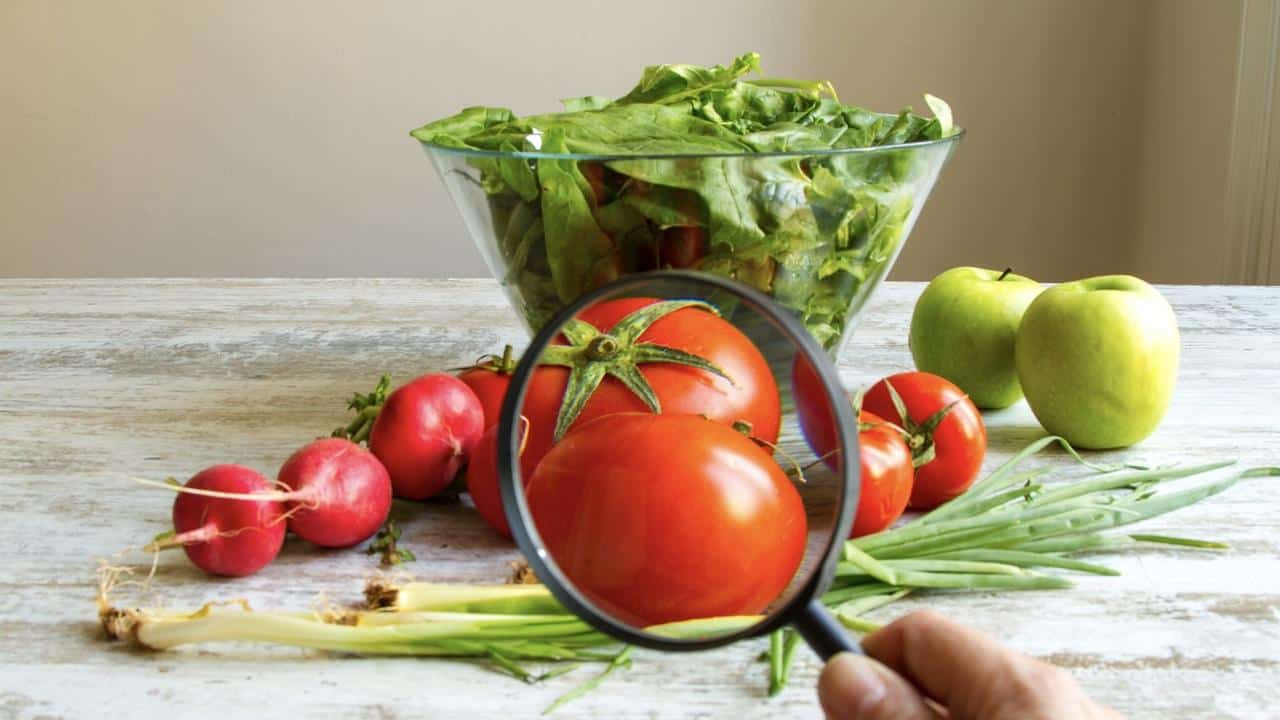
Not all ‘vegan’ food is actually vegan
It can be hard to follow a vegan diet, especially if you are someone who is looking to stay extremely strict for the purposes of being an animal activist. There are a lot of foods on the market that doesn’t list all of the ingredients of the ingredients that they use in the production of their products.
For example, a dried fruit company won’t list the types of pesticides that their fruit is treated with. There are some pesticides on the market that use crushed up shells from shellfish in the production of their pesticides. That would make the dried fruit non-vegan since there is the use of an animal by-product in the production of the food. However, if you are looking to follow a vegan diet strictly for health benefits alone, you may have an easier time finding vegan foods to eat.
Increased potential mineral and vitamin loss
While there are foods that vegans can get vitamins and minerals from, most vegans don’t end up eating enough of these nutrient-dense foods. For example, Vitamin D isn’t a vitamin that is typically found inside of the vegan diet; while leafy greens can be a good source of Vitamin D, you may not be consuming enough of those greens to make sure that your body has enough of a storage. Taking a supplement like a one a day or individual supplements may be beneficial for your long-term health.
How are the keto and vegan diet different?
The biggest and most obvious difference between these two diets has to do with what you’re allowed to consume. On a vegan diet, it’s encouraged to eat fruits, starchy veggies, and beans, all which are high in carbs. Following the keto diet, you are encouraged to eat butter, eggs, and animal fat. While these diets aren’t polar opposites, they most definitely go hand in hand when it comes to what you are and are not allowed to eat.
It is possible to follow both the vegan and the keto diet together, but since both of these diets are already very restrictive, you may find that combining both of these diets is a little too restrictive for your own personal taste.
How are the keto and vegan diet similar?
Not many people find that it’s easy to stick with veganism just the same as not many people find that it’s easy to stick with the keto diet. It can be very difficult to find a quick bite to eat or restaurants that provide vegan or keto options. Just the same as some foods may have unidentified animal by-products, there are foods out there that have sneaky carbs in them that you may not always realize. Both of these diets can be labeled as restrictive, but both offer followers great health benefits if followed properly.
Conclusions
The ketogenic diet is a great diet to follow if you are somebody who is looking to lose weight or if you are looking manage the symptoms of a disease. While it may seem like an extreme diet to follow, I would highly recommend following a low carb diet before going with the ketogenic diet if you are someone who is used to eating a high carb diet. Following a vegan diet is a great weight to lose a few extra pounds, but the ketogenic diet is better if you’re looking to lose a lot of weight.
You may find that going out to eat at restaurants can be difficult for followers of both the ketogenic and a vegan diet. No matter which diet you end up choosing, make sure that you’re choosing nutrient-rich foods. Basing your diet around nutrient-rich, whole foods will help to ensure that you’re consuming enough vitamins and minerals, which will make sure that you are getting all of the proper nutrients that your body needs.
Additional Readings:
- The Best Snack Ideas to Include in Your Ketogenic Diet
- The Best Keto Friendly Restaurant Chains
- Sneaky Fruits and Vegetables to Avoid on Keto
- Common Mistakes to Avoid on the Keto Diet That Will Keep the Weight Loss Coming
- The Best Vitamins to Take on Ketogenic Diet
- Whole30 vs Keto Compared
- 5 Best Ketogenic Diet Books in 2018
Medical Review Comments from Dr. Robin Walsh, BASc, ND
I thought this article was really well written, and gives a great explanation of the differences and similarities between the ketogenic and vegan diet.
I actually have many clients now that are interested in being vegan or at least vegetarian but are also seeing the benefits of the ketogenic diet, especially when it comes to blood sugar balance and weight loss. The author mentions that these plans can become restrictive and I totally agree. Before anyone should embark on either of these plans, you should take some baby steps to see if it is something that you can or should sustain.
To transition into a more plant based diet from a moderate to high meat based diet you could start with even one plant based meal, and then transition to something like 50/50 plant to meat based protein. Regardless of whether or not you choose to go completely vegan or ketogenic there are a lot of longevity research and health properties to both plans. I believe that for a variety of reasons, it would benefit the majority of people to consume more plant based protein and less carbohydrates, especially those that are refined
Note: Dr. Robin Walsh is not associated with any products, will never recommend a specific product, nor give specific medical advice here in her contributions. She comes as a representative of herself alone and always recommends consulting with your primary care physician before making any health-related decisions.
Disclaimer
Last updated: December 16, 2019
The information contained on www.altprotein.com website (the “Service”) is for general information purposes only.
Alt Protein assumes no responsibility for errors or omissions in the contents on the Service.
In no event shall Alt Protein be liable for any special, direct, indirect, consequential, or incidental damages or any damages whatsoever, whether in an action of contract, negligence or other arising out of or in connection with the use of the Service or the contents of the Service. Alt Protein reserves the right to make additions, deletions, or modification to the contents on the Service at any time without prior notice.
Alt Protein does not warrant that the Service is free of viruses or other harmful components.
Fitness disclaimer
The Service offers health, fitness and nutritional information and is designed for educational purposes only. You should not rely on this information as a substitute for, nor does it replace, professional medical advice, diagnosis, or treatment. If you have any concerns or questions about your health, you should always consult with a physician or other health-care professional.
Do not disregard, avoid or delay obtaining medical or health-related advice from your health-care professional because of something you may have read on the Service. The use of any information provided on the Service is solely at your own risk.
You can also review our Editorial Integrity Policy.
Alt Protein Team is a team of professionals and enthusiasts committed to bringing you the most up-to-date information on alternative protein, health and wellness, workouts, and all things health-related. We’ve reviewed a lot of products and services so you don’t have to guess when you spend your hard-earned money on them. Whether you want to shed some pounds, build lean muscle or bulk, we can help you figure out what you need to do and what you need to have to achieve your goals.


